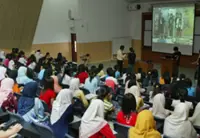PETALING JAYA: With academic misconduct on the rise and millions of ringgit spent on payments for publication in journals, there is an urgent need to review key performance indicators (KPIs) set for researchers in Malaysian higher education institutions (HEIs), say academics.
Cases of academic misconduct include plagiarism, fabrication, falsification, ghost authorship and publication in predatory journals.
Follow us on our official WhatsApp channel for breaking news alerts and key updates!
Thank you for your report!





